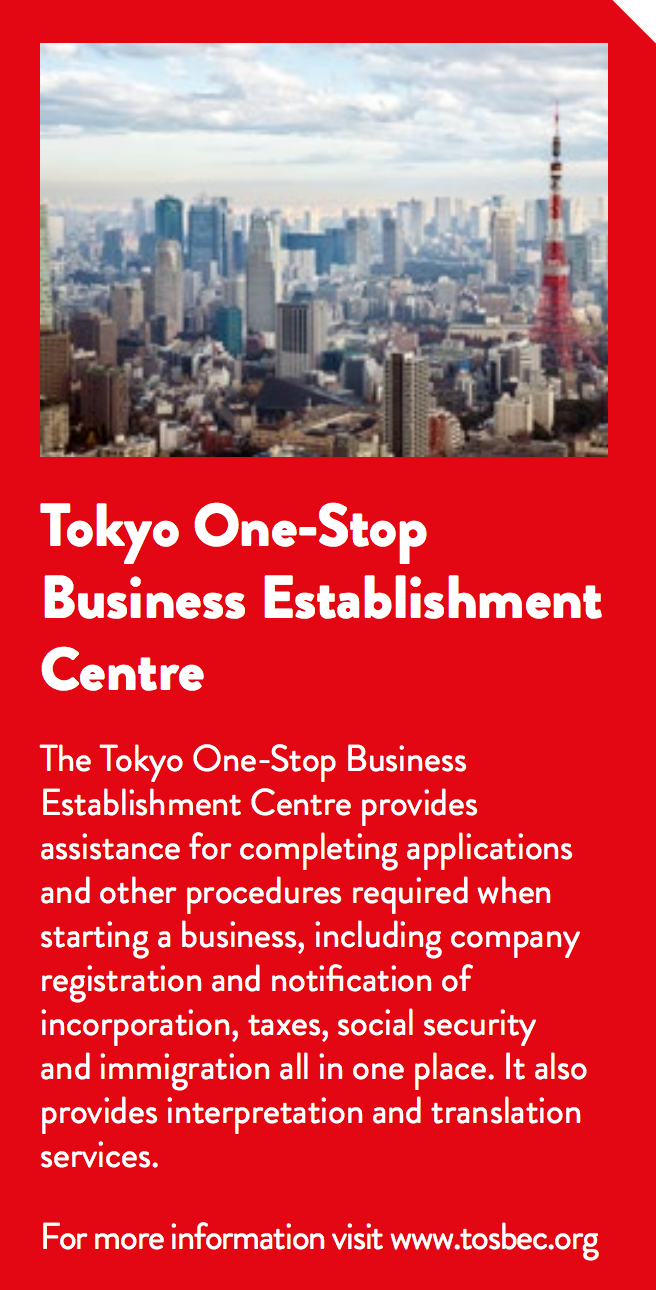Registering a business in Japan
Japan can be a challenging place for foreign businesses. Language, culture and regulations are all issues that need to be considered and managed. Foreign companies wishing to operate on a continuous basis in Japan must formally register one of the following:
1. The appointment of a representative in Japan
2. The establishment of a branch office
3. A Japanese corporation
4. A partnership.
Australian businesses looking to enter the Japanese market can establish the following structures:
- A joint-stock company called a Kabushiki Kaisha (KK)
- A company similar to a limited liability company called a Godo Kaisha (GK)
- A registered branch office.

Incorporation process
For Kabushiki Kaisha (KK):
- Application to register the incorporation of the KK with the Japan Legal Affairs Bureau
- Acquisition of a certificate evidencing the company’s registration and a certificate evidencing the registration of its seal (approximately 10 days after the application for registration)
For Godo Kaisha (GK):
- Application to register the incorporation of the GK with the Legal Affairs Bureau
- Acquisition of a certificate evidencing the company’s registration and a certificate evidencing the registration of its seal (approximately 10 days after the application for registration)
Representative office
Unlike subsidiaries and branch offices, representative offices do not require registration. Representative offices may conduct market surveys, collect information, purchase goods and carry out publicity/advertising activities, but they are not permitted to engage in sales activities.
Intellectual property
In general terms, the registration process and protection of IP in Japan is similar to Australia. Filing fees are comparable, however examination and renewal fees tend to be more expensive. Businesses should also factor translation fees into the total cost of filing, as applications must be submitted in Japanese.
The Japan Patent Office (JPO) is the government body responsible for registering IP protection. The JPO website also provides searchable trademark, patent and design databases. Foreign businesses must file trademark, patent and design applications through an attorney or agent based in Japan.
Company seals
As in other parts of Asia, seals are an important part of doing business in Japan. Seals are referred to as hakon or inkan in Japanese. Seals are like signatures. Companies incorporated in Japan must have a company seal registered with the Legal Affairs Bureau, Ministry of Justice. The registered seal is used to execute contracts and on formal documents submitted to government offices.
Registering a property
Japan stands at 49 in the ranking of 190 economies on the ease of registering property. Registering property there requires six procedures, takes 13 days and costs 5.8 per cent of the property value.

Incentives offered by prefectural governments in Japan
Osaka: O-BIC Support Program for Foreign Companies
Subsidising expenses for registration (up to 100,000 yen per company) and acquisition of resident status (up to 50,000 yen per company).
Nigata City: Foreign Company Business Promotion Subsidy
Subsidising registration fees (maximum 150,000 yen per company) and rent (1/2 of monthly rent x 2 years, maximum 50,000 yen per month).
Registration and licence taxes
Levied where certain property is registered, at a rate from 0.1 to 2 per cent of the taxable basis or at a fixed amount. The taxable basis depends upon the property being registered (e.g. the amount of paid-in capital registered by a company or the value of real estate as assessed by local tax authorities).
Want to learn more? Explore our other Indonesia information categories or download the Japan Country Starter Pack.
